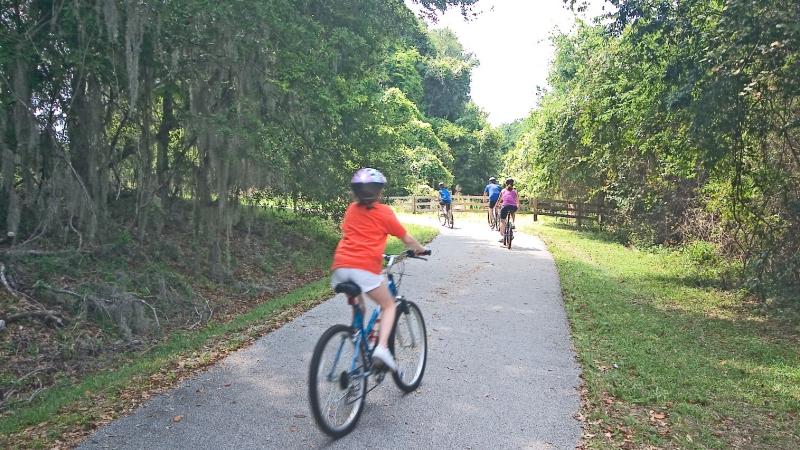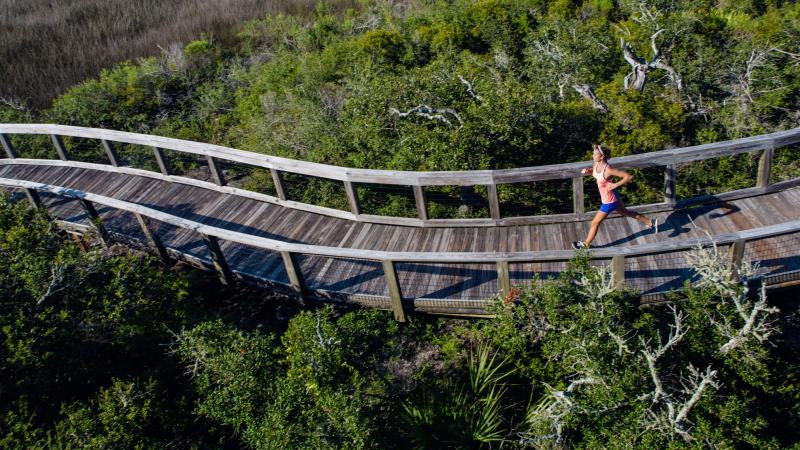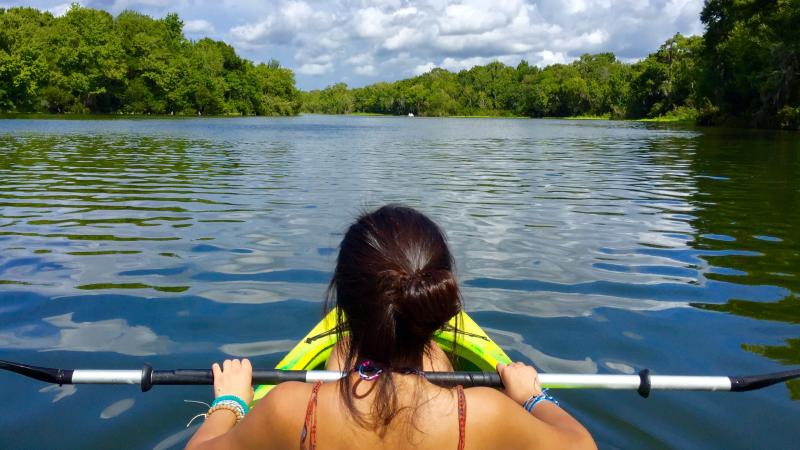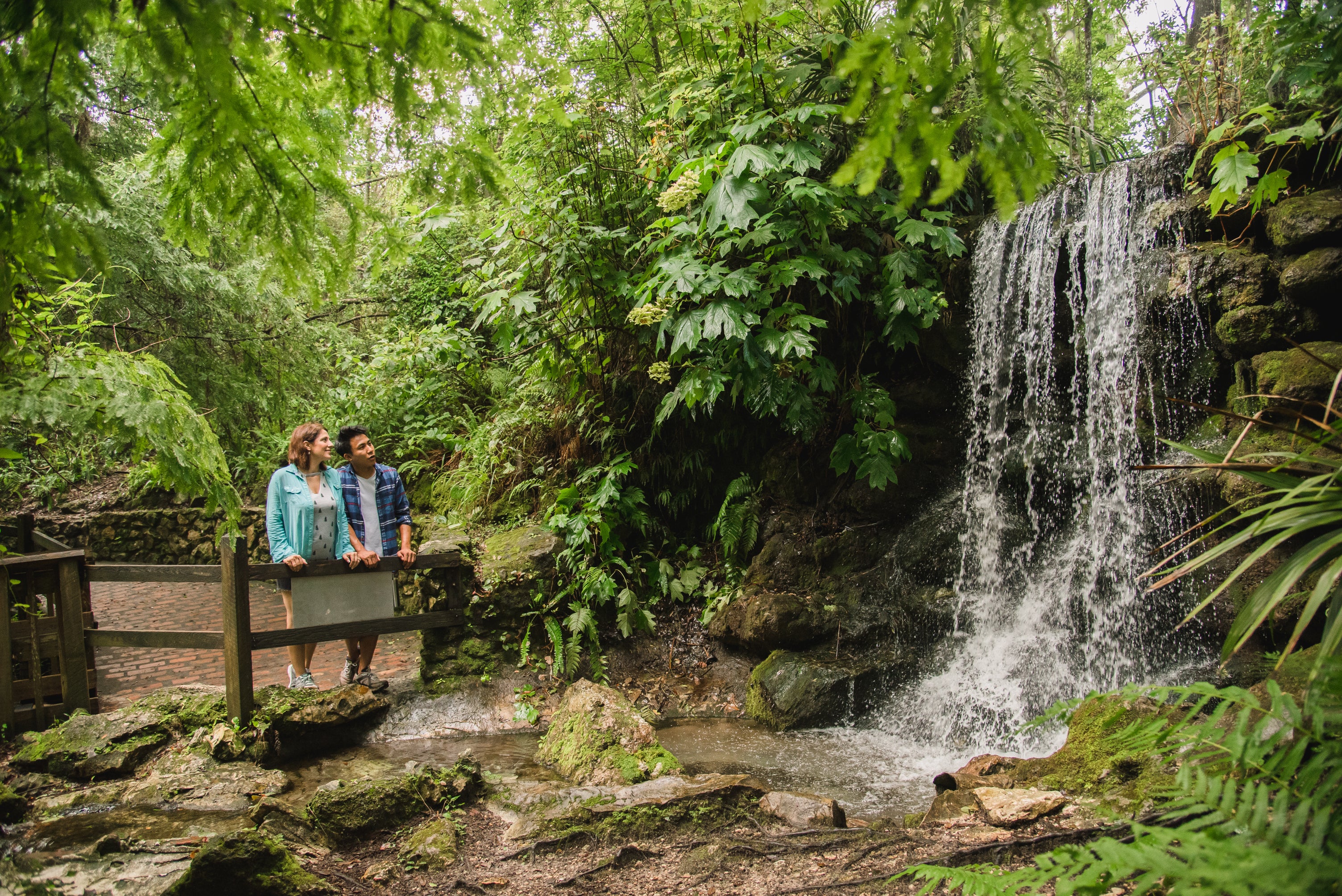
Feel Better Outside
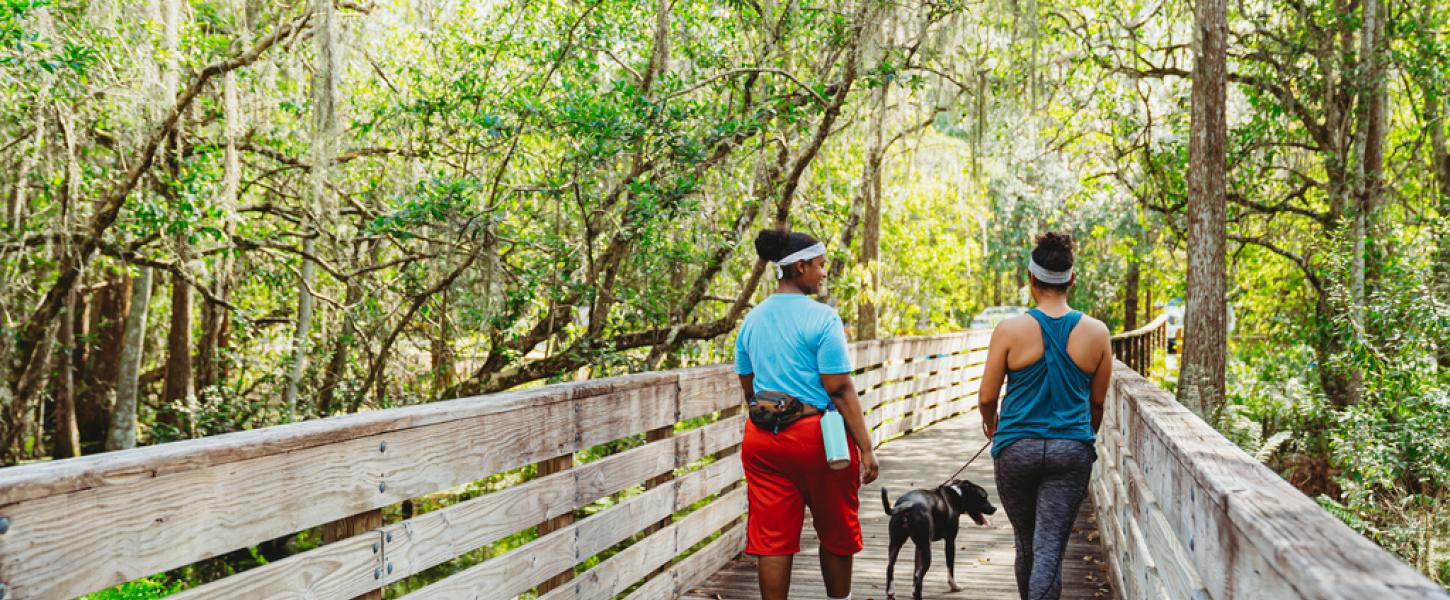
Strolling through a forest or relaxing by a lake can make us feel better — and lower stress has mental and physical benefits.
Sometimes it’s difficult to make time for the outdoors, but getting just little bit of nature can have a big positive impact. Exactly how do we benefit from time spent in the natural world? These are just a few of the mental boosts that researchers have discovered.

Get Creative
At a dead-end with an art project or work problem? A study in PLOS ONE found that immersion in nature can boost performance on problem-solving tests. Scientists are still working out exactly why nature benefits the mind like this, but it’s clear that connecting with nature can help generate new ideas.
Stay Chill
When done in nature, moderate activity like walking has extra benefits. Evidence shows that walking in green spaces can help us recover from attention overload and control anxiety.
Gain Energy
Being in nature can increase energy and reduce mental fatigue by provoking curiosity. Finding a magnolia bloom the size of your hand or watching a zebra swallowtail butterfly soar can be invigorating. Feel like reaching for a cup of coffee? Try a short walk among the trees.
Get More Done
Australian and British scientists analyzed whether lunchtime walks improved work performance over a 10-week period. Walking outdoors at lunch was shown to improve enthusiasm and calmness and reduce nervousness at work.
Activate Your Brain
One study focused specifically on brooding, or when we get stuck on negative thoughts. After a walk in natural environments, participants’ brain scans showed reduced activity in an area of the brain linked to brooding compared to test subjects who walked near a highway.
How much time does it take?
These are great benefits, but most of us can’t set aside hours every day for nature walks. So how much time in nature is necessary to enjoy positive effects? It’s less than you might think! Scientists recently found that research participants who spent two hours per week in nature were much more likely to report good health and a sense of well-being. This held true whether participants got their nature time in 15-minute chunks or longer trips.
